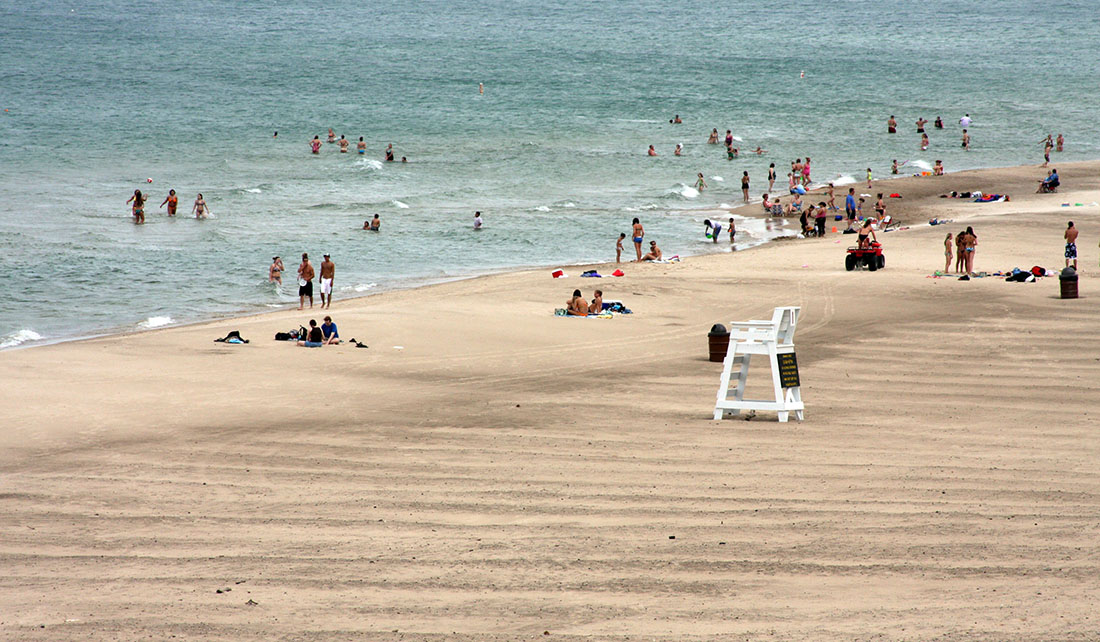
We depend on nature for our health and well-being in what seems countless ways—from food, medicine, and shelter, to our quality of life. Yet when decision makers plan for a community’s future, there may be no concrete value ascribed to natural areas.
An IISG study supported by NOAA through the Indiana Department of Natural Resources, and Indiana Lake Michigan Coastal Program, has begun the process of defining the value of Indiana’s aquatic ecosystems.
“Ecosystem services are the benefits that people, communities, and economies receive from nature,” said Leslie Dorworth, IISG aquatic ecology specialist. “For example, a healthy food web in Lake Michigan is part of a thriving ecosystem, but it can also provide a benefit to those who engage in fishing.”
Dorworth, and Margaret Schneemann, IISG resource economist, sat down with 10 Indiana natural resource managers and decision makers to define coastal ecosystem services in the region. They identified the biggest threats to natural areas as nutrient pollution from a variety of sources, climate change, and physical changes to water bodies or water flow. The participants prioritized ecosystem services, including water purification, native flora and fauna, spiritual and aesthetic recreation, and the combination of erosion, sediment and flood control.
The list of priority coastal ecosystem benefits developed in this process became the driver for Dorworth and Schneemann’s literature search of studies in the Great Lakes region. They reviewed available economic value estimates of these coastal ecosystem services, finding only a few that included Indiana.
“We also found a mismatch in what ecosystem services were prioritized by coastal zone managers and those that are studied,” said Schneemann. “For example, there is a lack of research on spiritual and aesthetic values of the coastal zone, which is a top ecosystem service as identified by stakeholders along the Indiana coast.”
“The next step in this process is to work with Indiana coastal resource managers to refine research questions that when answered, will help them make decisions that are informed by what is important to people,” she added.
Illinois-Indiana Sea Grant is a part of University of Illinois Extension and Purdue University Extension.

